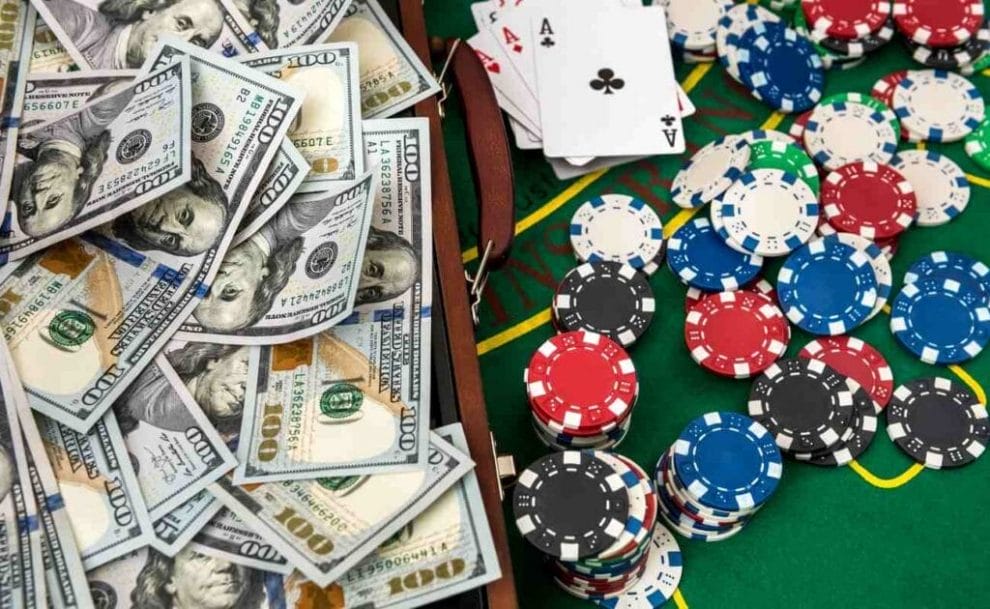
If you’re making the jump from online poker to a brick-and-mortar card room, few things are more important than understanding the rules. But even if you’re already a complete expert, situations can sometimes get out of hand. Disputes are inevitable.
Don’t worry, though. Casinos have staff in place to deal with such problems. In this blog post, you’ll learn who they are and what their roles are in clearing up misunderstandings. You can also discover casino etiquette and how to behave in such high-intensity situations.
Potential Disputes
Whether you’re playing a cash game online or a live tournament, it’s vital to understand the rules. But even the most experienced players, who know the poker rules inside out, sometimes find themselves embroiled in disputes.
Here are a few examples of what a dispute might look like.
Disagreements Over Rules
Rules are sometimes open to interpretation. For instance, when a player shoves all in, but the amount isn’t a full raise, what happens? Different locations have different rules regarding whether or not the action has been re-opened.
This is a common mistake among players switching from playing poker online to brick-and-mortar venues for the first time.
Misinterpretations
There’s a lot of subtlety in poker. Your body language can give a lot away. As such, people are scrutinizing every move. You might think that some players are even over-analyzing the situation.
If you push your chips forward slightly while counting them, it might look like you’re feigning a bet. You could be accused of angle shooting, and a debate may ensue. Similarly, it’s common to see players throwing a single chip into the pot. This can lead to a debate about whether it was meant to be a call or a raise.
Accusations of Cheating
If you are accused of cheating or behaving inappropriately, it’ll be thoroughly investigated. Casinos have to take this sort of thing seriously to make sure their environment is fair and secure for everyone.
Whether it’s marked cards, collusion, or simply being rude and obnoxious, poker rooms will step in where they see fit.
How To Act When There’s a Dispute
Okay, so things are getting heated. What should you do? Well, the first thing is to stay calm. Especially if you’re holding a good hand. The last thing you want is to telegraph the strength of your cards because you’re getting angry about an altercation.
However, it’s about much more than that. If you lose your head, you might do something you regret. Nobody likes to hear bad language or see violence, so don’t tarnish your reputation. Take a deep breath, stay calm, and let the red mist clear.
Remember, manners go a really long way, and people will remember how you behave.
Dealer’s Role in Poker Disputes

The croupier or dealer is basically a helpful guide to steer you around the casino world. They are not, however, the judge and jury when there’s a problem. They will simply call the “floor,” a common term for the officials, such as a tournament director or poker room manager. It’s their job to gather the facts and to hear both sides of the story before making a fair decision. The dealer is simply the conduit. They’ll explain to the floor person what happened before the arguing parties present their own cases.
Remember, tipping the dealer is a common courtesy for their role in keeping the game moving. But it’s not for getting them to side with you when there’s a problem.
The Role of the Floor
Who is this floor person, and what authority do they hold? Essentially, they’re the casino’s poker referee. When they arrive, they’ll listen, assess, and resolve the issue at hand. Think of them as the peacemaker who knows the rules of poker inside out.
They’ll also use their vast experience to make a judgment call. It might not always go your way, but their word is absolute. They have the final say whether in a real or an online casino.
Basically, they aim to keep the game fair, ensuring that all players have an opportunity to win poker tournaments based on skill rather than misunderstandings or arguments.
Tips for Resolving Conflicts
When you’re involved in a situation at the poker table, how you handle it can have all kinds of impacts. Not just in the short term but in the future, too. Here are some tips to help you handle such issues with care.
Respect
If a conflict arises, approach it respectfully. First, poker is meant to be an enjoyable game, so don’t make things worse by getting into a fight. If there’s a disagreement, just breathe and stay calm.
Respectful dialogue can resolve a conflict without needing to escalate the matter to the floor. If it has to go higher, let the proper officials take care of it and accept their judgment gracefully. Don’t forget, too, that you might actually be the one in the wrong.
Dealing With Difficult Opponents
If you face an argumentative opponent, try to focus on your game and not their antics. It’s easy to get offended by someone’s aggressive play or rude comments. But you can’t let it rattle you and throw you off your game. Practice sticking to your strategy and maintaining your cool. Don’t let them get under your skin and cause conflicts.
Compromise
Finding a middle ground is often the best way to move past a dispute. Compromise doesn’t mean you’re giving up. You’re just playing the long game. A fair resolution helps the game to continue smoothly, which will be appreciated by others. It also shows you’re a player who values the integrity of the game over a short-term win.
Importance of Poker Room Etiquette
Poker room etiquette is much more than just knowing and following rules. You should be looking to build relationships and cultivate a positive reputation. Good manners are valuable social capital in poker rooms.
People have long memories and will remember how you treated them. Behaving properly can lead to more enjoyable games, a better learning environment, and even earn you a few favors in the future. It’s unlikely that anyone will oblige favors or cut you slack if a reputation for bad behavior precedes you.
Good etiquette can also earn you friendly advice from those who have been in the game longer. Over time, all of these benefits can enhance your experience at the table and help you learn to play poker at a higher level.
Master the Rules at Borgata Online

Navigating disputes in poker is easy if you have the proper knowledge. No matter the situation, it’s vital to understand the role of the dealer and the floor and how to behave yourself. Keep your cool, respect others, and learn the game’s etiquette. Before diving into the live poker environment, learn the basics of tournament play first. Register with Borgata Online, one of the best online poker sites in the country, and join dozens of poker tournaments today.
